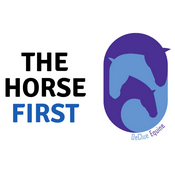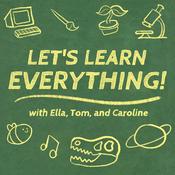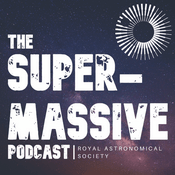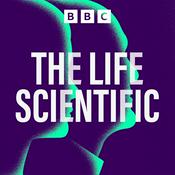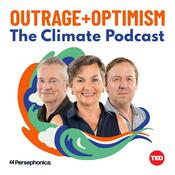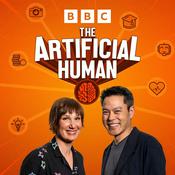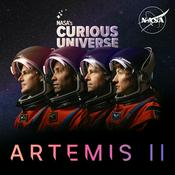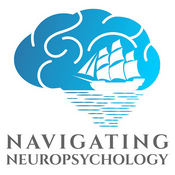446 episodes
- Jim talks with Michael Shermer about his worldview and his new book, Truth: What It Is, How to Find It, and Why It Still Matters. They discuss Michael's self-identification as a monist and realist who believes in a physical objective world, the concept of fallibilism, intersubjective verification of the interobjective, reliance on authorities and institutions, the battle between the book of authority versus the book of nature, balancing rationality with empiricism, the dependence of mathematical truths on axioms, January 6 as an example of people acting rationally on false beliefs, Shermer's journey from born-again Christian to atheist and Jim's opposite journey from Catholicism to atheism, treating religious literature like great literature with deeper truths, the study of consciousness and the hard problem versus the easy problem, separating intelligence from consciousness, consciousness as a biological process like digestion, the question of machine sentience, a critique of Donald Hoffman's interface theory, evidence for veridical perception through mimicry in nature and animals climbing trees, skepticism about brain-in-a-vat and simulation scenarios, minimum viable metaphysics, Thomas Nagel's concept of one thought too many, Jonathan Rauch's constitution of knowledge, the replication crisis in psychology, the breakdown of trust in institutions due to COVID and the noble lie, the problem of scaling laws with followership, moral realism and the survival and flourishing of sentient beings, the principle of interchangeable perspectives, discovering moral values through problem-solving, the evolution of ethics and the expanding moral sphere, and much more.
Episode Transcript
Truth: What It Is, How to Find It, and Why It Still Matters, by Michael Shermer
The Michael Shermer Show
Why People Believe Weird Things, by Michael Shermer
The Believing Brain, by Michael Shermer
Why Darwin Matters, by Michael Shermer
The Science of Good and Evil, by Michael Shermer
Conspiracy: Why the Rational Believe the Irrational, by Michael Shermer
"A Minimum Viable Metaphysics," by Jim Rutt
JRS EP 287 - Jonathan Rauch on the Epistemic Crisis
Dr. Michael Shermer is the Founding Publisher of Skeptic magazine and the host of the podcast The Michael Shermer Show. For 30 years he taught college and university courses in critical thinking, and for 18 years he was a monthly columnist for Scientific American. He is the author of New York Times bestsellers Why People Believe Weird Things and The Believing Brain, Why Darwin Matters, The Science of Good and Evil, The Moral Arc, Heavens on Earth, Giving the Devil His Due, and Conspiracy: Why the Rational Believe the Irrational. His new book is Truth: What it is, How to Find it, Why it Still Matters. Follow him on X @michaelshermer. - Jim talks with Ben Goertzel about his worldview. They discuss Ben's morning experience of consciousness crystallizing from ambient awareness, his identification as a panpsychic, the concept of pattern being more fundamental than stuff, Charles Peirce's ontology of first/second/third, the idea of uryphysics as a broader notion of physics beyond metaphysics, parapsychology and psi phenomena including remote viewing and Project Stargate, reincarnation-like phenomena and cases from India, experimental design in parapsychology research, the legitimation of both AGI and psi research, the consciousness explosion occurring alongside AI/ASI development, Jeffrey Martin's work on fundamental well-being and persistent nonsymbolic experience, the immense design space of possible minds, human cognitive limitations like seven plus or minus two short-term memory, the single-threaded nature of human consciousness versus potential multi-threaded ASI, scenarios for beneficial superintelligence and options for humans to remain in human form or upload, the question of how long human existence would remain interesting post-singularity, psychedelics as tools for accessing different states of consciousness and insights into mind construction, the absence of shamanic institutions in modern culture, experiences with DMT and heroic doses, holding multiple contradictory perspectives simultaneously, Walt Whitman's notion of containing multitudes, Ben's intuitive sense that consciousness and the basic ground of being are fundamentally joyful and compassionate, arguments for why superintelligence will likely be good based on efficiency of mutually trusting agents, and much more.
Episode Transcript
The Consciousness Explosion, by Ben Goertzel
JRS EP 217 Ben Goertzel on a New Framework for AGI
JRS EP 211 Ben Goertzel on Generative AI vs. AGI
JRS Currents 072: Ben Goertzel on Viable Paths to True AGI
Evidence for Psi: Thirteen Empirical Research Reports, ed. Damien Broderick & Ben Goertzel
Dr. Ben Goertzel is a cross-disciplinary scientist, entrepreneur and author. Born in Brazil to American parents, in 2020 after a long stretch living in Hong Kong he relocated his primary base of operations to a rural island near Seattle. He leads the SingularityNET Foundation, the OpenCog Foundation, and the AGI Society which runs the annual Artificial General Intelligence conference. Dr. Goertzel’s research work encompasses multiple areas including artificial general intelligence, natural language processing, cognitive science, machine learning, computational finance, bioinformatics, virtual worlds, gaming, parapsychology, theoretical physics and more. - In the inaugural episode of a new series, Jim talks with David Krakauer about his intellectual formation and worldview. They discuss what woke up as David this morning, his commitments to chance and pattern seeking, his epiphany about the idea of the idea at age 12 or 13, his perverse attraction to the arcane and difficult, evolution as integral to intelligence, the risk-averse character of scholars and the sociology of science, the Santa Fe Institute's attempt to maintain revolutionary science, the Ouroboros concept challenging foundationalism in epistemology, the standard model of physics as foundational versus the view that you can establish foundations anywhere, string theory as a slowly dying pseudoscience, whether beauty is a useful guide in science, emergence and broken symmetries, Phil Anderson's "More is Different" paper, the Wigner reversal and the shift from law to initial conditions, rejecting both weak and strong emergence, effective theories and causally justified concepts, downward causality, micrograining versus coarse graining, the distinction between abiotic and biotic systems, games and puzzles as model systems for complexity, combinatorial solution spaces, heuristics as dimensional reducers and potentially the golden road to AGI, Isaiah Berlin's influence on David's worldview, negative versus positive liberties, value pluralism and historicity, the Fermi paradox and the possibility of alien life, the rational versus the irrational in human life, and much more.
Episode Transcript
JRS EP 192 - David Krakauer on Science, Complexity and AI
JRS EP10 - David Krakauer: Complexity Science
The Complex World: An Introduction to the Foundations of Complexity Science, by David Krakauer
Worlds Hidden in Plain Sight: The Evolving Idea of Complexity at the Santa Fe Institute, 1984–2019, by David Krakauer
History, Big History, & Metahistory, by David Krakauer
"A Minimum Viable Metaphysics," by Jim Rutt
"More Is Different," by P.W. Anderson
The Emergence of Everything, by Harold Morowitz
David Krakauer’s research explores the evolution of intelligence and stupidity on Earth. This includes studying the evolution of genetic, neural, linguistic, social, and cultural mechanisms supporting memory and information processing, and exploring their shared properties. President of the Santa Fe Institute since 2015, he served previously as the founding director of the Wisconsin Institutes for Discovery, the co-director of the Center for Complexity and Collective Computation, and professor of mathematical genetics, all at the University of Wisconsin, Madison. EP 328 Brendan Graham Dempsey Interviews Jim Rutt on Minimum Viable Metaphysics
04/11/2025 | 55 mins.In this flipped episode, Brendan Graham Dempsey interviews Jim about the ideas in his recent Substack essays "A Minimum Viable Metaphysics" and "What I Mean by 'Metaphysics'." They discuss metaphysics as assumptions for learning and reasoning, the difference between deduction, induction, & abduction, Jim's belief that there are no paradoxes in the real world, the reality principle, the asymmetry principle, the lawfulness principle, the potential stochastic nature of reality, why determinism and lawfulness aren't the same, consciousness in the tree of emergence, why emergence is important, causal time, downward causality as the main claim of emergence, temporal reciprocal emergence, Jim's reputation for drawing a firearm when the word metaphysics is used, the weak & strong anthropic principles, and much more.
Episode Transcript
"A Minimum Viable Metaphysics," by Jim Rutt
"What I Mean by 'Metaphysics'," by Jim Rutt
JRS EP 322 - Brendan Graham Dempsey on Psyche and Symbolic Learning
Institute of Applied Metatheory
The Beginning of Infinity: Explanations That Transform the World, by David Deutsch
JRS Currents 100: Sara Walker and Lee Cronin on Time as an Object
Brendan Graham Dempsey is Director of Research at the Institute of Applied Metatheory, where he studies the complexification of worldviews and human meaning-making systems across scales. He holds an advanced degree from Yale University, where he studied religion and culture. His books include Emergentism: A Religion of Complexity for the Metamodern World and the multi-volume Evolution of Meaning series. He is Managing Editor of Integration: The Journal of Big Picture Theory and Practice and a founding editor of Metamodern Theory & Praxis.- Jim talks with Nate Soares about the ideas in his and Eliezer Yudkowsky's book If Anybody Builds It, Everyone Dies: Why Superhuman AI Would Kill Us All. They discuss the book's claim that mitigating existential AI risk should be a top global priority, the idea that LLMs are grown, the opacity of deep learning networks, the Golden Gate activation vector, whether our understanding of deep learning networks might improve enough to prevent catastrophe, goodness as a narrow target, the alignment problem, the problem of pointing minds, whether LLMs are just stochastic parrots, why predicting a corpus often requires more mental machinery than creating a corpus, depth & generalization of skills, wanting as an effective strategy, goal orientation, limitations of training goal pursuit, transient limitations of current AI, protein folding and AlphaFold, the riskiness of automating alignment research, the correlation between capability and more coherent drives, why the authors anchored their argument on transformers & LLMs, the inversion of Moravec's paradox, the geopolitical multipolar trap, making world leaders aware of the issues, a treaty to ban the race to superintelligence, the specific terms of the proposed treaty, a comparison with banning uranium enrichment, why Jim tentatively thinks this proposal is a mistake, a priesthood of the power supply, whether attention is a zero-sum game, and much more.
Episode Transcript
If Anybody Builds It, Everyone Dies: Why Superhuman AI Would Kill Us All, by Eliezer Yudkowsky and Nate Soares
"Psyop or Insanity or ...? Peter Thiel, the Antichrist, and Our Collapsing Epistemic Commons," by Jim Rutt
"On Targeted Manipulation and Deception when Optimizing LLMs for User Feedback," by Marcus Williams et al.
Attention Sinks and Compression Valleys in LLMs are Two Sides of the Same Coin," by Enrique Queipo-de-Llano et al.
JRS EP 217 - Ben Goertzel on a New Framework for AGI
"A Tentative Draft of a Treaty, With Annotations"
Nate Soares is the President of the Machine Intelligence Research Institute. He has been working in the field for over a decade, after previous experience at Microsoft and Google. Soares is the author of a large body of technical and semi-technical writing on AI alignment, including foundational work on value learning, decision theory, and power-seeking incentives in smarter-than-human AIs.
More Science podcasts
Trending Science podcasts
About The Jim Rutt Show
Crisp conversations with critical thinkers at the leading edge of science, technology, politics, and social systems.
Podcast websiteListen to The Jim Rutt Show, More or Less and many other podcasts from around the world with the radio.net app

Get the free radio.net app
- Stations and podcasts to bookmark
- Stream via Wi-Fi or Bluetooth
- Supports Carplay & Android Auto
- Many other app features
Get the free radio.net app
- Stations and podcasts to bookmark
- Stream via Wi-Fi or Bluetooth
- Supports Carplay & Android Auto
- Many other app features


The Jim Rutt Show
Scan code,
download the app,
start listening.
download the app,
start listening.












